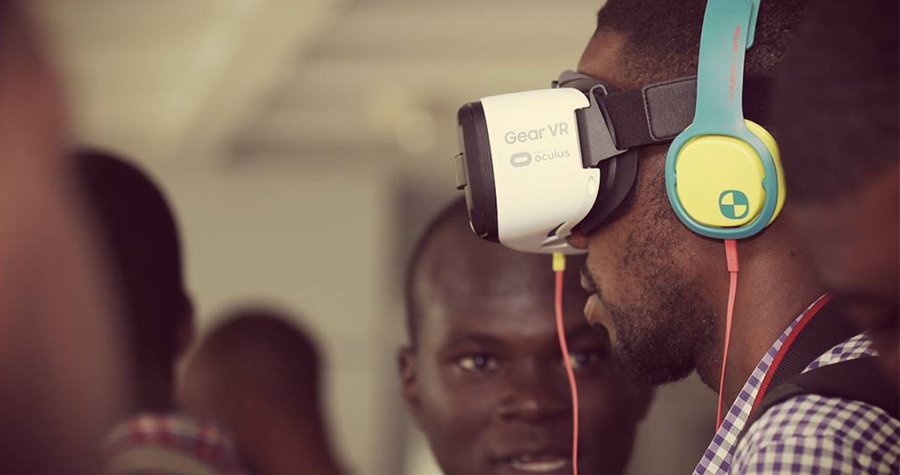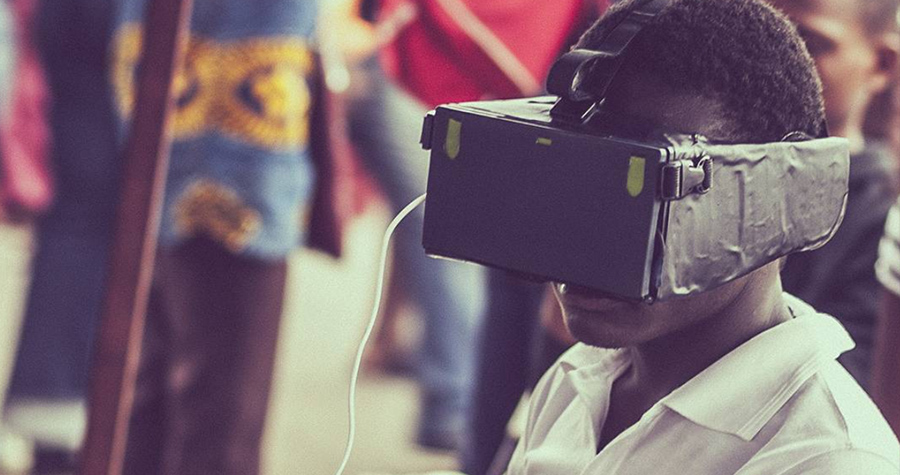 February 12, 2019
February 12, 2019
When Kabiru Seidu ’14 first discovered Virtual Reality (VR) some four years ago, he was instantly hooked and dived headfirst into research into the technology. Before long, he was completely immersed in the technology and subsequently co-founded a company focused on making accessible VR content, NubianVR, whose early days saw them experimenting with Photo-tours and VR-films.
Eventually, inspired by the seemingly endless possibilities to create impactful content, Kabiru and his team refocused their work on creating low-cost content for education. Key to this decision was his experience from one particular class he took at Ashesi.

“I’ve always had an interest in emerging technology,” he shared. “And after discovering virtual reality I found it fascinating and the possibilities quite endless. And when I took the Leadership 4 class at Ashesi and learned and practiced servant-leadership, I resolved that my life work should contribute to some kind of meaningful cause beyond profit. And so in 2017, convinced VR could help increase access to education and have a strong impact in the attainment of the Sustainable Development Goal 4’s targets, our team devised a plan to collaborate, research and prototype Virtual Reality Educational Technologies.”
After two years of exploring this space, NubianVR’s work struck a chord with the UNICEF Office of Innovation, which eventually invested a $98,000 equity-free investment through its Innovation Fund, to enable the organization to validate its approach to learning in VR. The Innovation Fund allows UNICEF to quickly assess, fund and grow open-source solutions that can improve children’s lives.

For Kabiru, not only is this an affirmation of the importance of NubianVR’s work, but it is also a much-needed boost to his organization’s goal of improving education delivery across the continent.
“It is our goal to converge all the best-practice in digital learning into virtual environments with the goal of making them accessible to all,” he shared. “Virtual Reality provides an avenue to access learners who have otherwise remained beyond the reach of brick and mortar institutions – such as low-income earners, learners in conflict areas and adult learner. The technology also provides the opportunity to improve the learning experiences of in-school students by enabling schools the opportunity to cost-effectively circumvent barriers to teaching and learning that have otherwise limited brick and mortar institutions; such as access to engaging learning materials and well-equipped labs.”
 Besides the funding, the partnership with the UNICEF Office of Innovation connects NubianVR to a network of organizations and technologists who are also focused on pushing the needle in the education space. And for Kabiru, the success of this partnership will hopefully serve as encouragement for more people to dedicate resources and technology to fill the gaps in education access.
Besides the funding, the partnership with the UNICEF Office of Innovation connects NubianVR to a network of organizations and technologists who are also focused on pushing the needle in the education space. And for Kabiru, the success of this partnership will hopefully serve as encouragement for more people to dedicate resources and technology to fill the gaps in education access.
“Our team is excited to have the opportunity to work alongside other emerging technology enthusiasts,” he shared. “Emerging technologies provide great prospects in enabling the global community to attain the Sustainable Development Goals. We are particularly excited to collaborate with other start-ups working in Virtual Reality, Artificial Intelligence, and Game-Based Learning; and we hope our work will be just the beginning of a much-needed leap forward.”
Share this story
